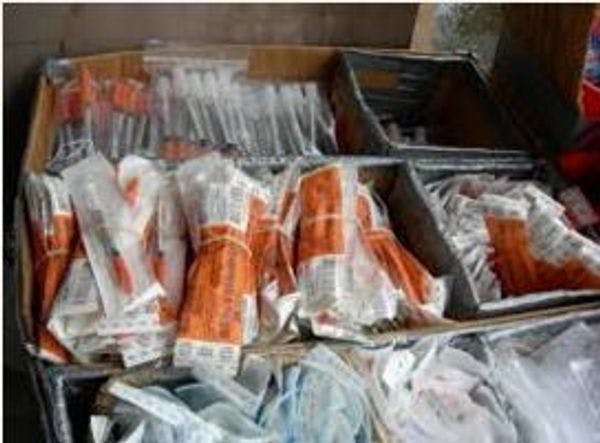Déclaration du CDC sur les programmes de services de seringues
Le directeur du Centre pour le Contrôle et la Prévention des maladies (CDC) aux Etats-Unis a publié un communiquémentionnant le support aux programmes de services d’échange de seringues, afin de lutter contre la transmission du VIH/SIDA et de l’hépatite C. Pour en savoir plus, en anglais, veuillez lire les informations ci-dessous.
Abonnez-vous à l'Alerte mensuelle de l'IDPC pour recevoir des informations relatives à la politique des drogues.
The US Centre for Disease Control and Prevention (CDC) released a statement from Dr. Jonathan Mermin, Director of the CDC’s National Center for HIV/AIDS, Viral Hepatitis, STD, and TB Prevention, on December 21st, 2015.
Congress has given states and local communities, under limited circumstances, the opportunity to use federal funds to support certain components of syringe services programs. These programs provide sterile injection equipment and may also link individuals to services including HIV and hepatitis C testing and care for those infected, substance abuse treatment, and overdose prevention.
Outbreaks in Indiana and elsewhere have been powerful reminders that people who inject drugs can be at very high risk for HIV and hepatitis C, and studies have shown that syringe services programs are cost saving, and can reduce the risk of infection without increasing drug use. CDC has historically recommended that states ensure people who inject drugs have access to integrated prevention services from a reliable source, including sterile injection equipment, opioid therapy, and HIV and hepatitis testing. Congress’s decision makes that job easier.
Overall, unsafe injection drug use accounts for approximately 8 percent of new HIV infections in the United States, and in recent years it has contributed to a 150 percent increase in acute cases of hepatitis C infections. Because these infections can spread from drug users to others, syringe services programs can help protect whole communities.
CDC is committed to helping communities use all effective tools to stop the spread of HIV and hepatitis. Along with other tools proven to reduce the risk of infection and strategies to prevent and treat substance abuse itself, syringe services programs can be a valuable component of a comprehensive prevention strategy for people who inject drugs and their partners.
Click here to view the full statement.
Keep up-to-date with drug policy developments by subscribing to the IDPC Monthly Alert.
Thumbnail: Wikipedia
